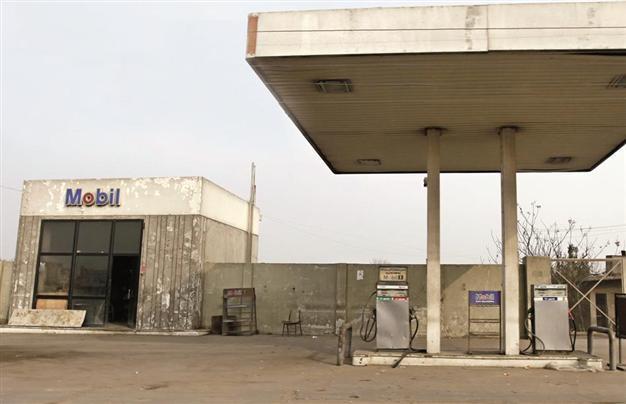Egypt debts to oil producers highlight subsidies struggle
LONDON - Reuters

A general view of a closed petrol station in Egypt. Egypt’s rising debts to oil firms stemming from increasing subsidies have been criticized by the International Monetary Fund, as the fund is forcing it to cut them to secure a $4.8 billion loan. REUTERS photo
Egypt owes at least $5 billion to oil companies, half of it overdue, corporate reports have revealed, in a development highlighting the country’s struggle to meet soaring energy bills while subsidising prices to avoid public unrest.
Egypt has been delaying payments to firms producing oil and gas on its territory as it has struggled with dwindling currency reserves, rising food bills and sliding tourism revenues since the 2011 revolution that overthrew Hosni Mubarak.
Egypt been in talks with International Monetary Fund (IMF) on a $4.8 billion loan and in last two days Arab allies Qatar and Libya announced that they will provide aids to cash-strapped country totalling $5 billion.
Cairo must convince the IMF that it is serious about reforms including cuts in fuel and food subsidies and tax increases to curb an unaffordable budget deficit and boost growth.
Most oil firms hope to recoup the debts in full, but they acknowledge it could take years. While they are still planning to invest in new projects in Egypt that will help it avoid an energy meltdown, the debt situation remains a challenge.
The government’s delay in paying its debts to oil and gas producers could hold back investment in the sector and potentially endanger Egypt’s energy security. “The delays in payments to the operators end up hurting Egypt itself as a potential decline in investment and production may lead to lower government revenues and a supply gap, in a potential vicious circle,” said Maji Jafar, managing director of the board of Dana Gas.
Dana is owed $230 million by Egypt in overdue payments for gas supplies and says it is in active dialogue with the government over the debts.
Financial disclosures by firms such as BP, BG, Apache, Edison and TransGlobe Energy show Egypt owed them more than $5.2 billion at the end of 2012.
Egyptian officials have never disclosed debt figures and have challenged estimates ranging between $7-$9 billion.
Foreign companies dominate the energy sector in Egypt, Africa’s top oil producer outside OPEC and its second largest gas producer after Algeria.
Output has been in decline in recent years. January oil production fell 3 percent year-on-year, according to government data, while gas output fell 9 percent.
Oil output was the lowest in three years and gas output the lowest in five years, according to the Middle East Economic Survey. Egypt’s oil use has risen by a third in the past decade, and exceeded oil output since 2008.
Political risk insuranceDriven by population growth and energy subsidies, which account to $15 billion a year or a quarter of the budget, Egypt’s gas use has nearly doubled over the last decade to nearly match production, thus limiting exports and hard currency revenues.
The Egyptian economy has been in crisis since the overthrow of Mubarak in 2011, with President Mohamed Mursi grappling with a weak economy and street protests. Rating agency Moody’s puts chances of a default at 10 percent within one year.
As political and economic conditions deteriorate, some have taken precautions. Apache has purchased a multi-year political risk insurance from the Overseas Private Investment Corp and other insurers to cover Egyptian risks.
Oil companies say output declines will be reversed as investment rises, despite the debt challenges
Major players say investment will remain stable or even rise despite the government caps on gas prices, which are below U.S. prices and are a fraction of EU prices. Egypt’s ministry of investment has said the energy sector will see a rise in investment in 2013 from $8.2 billion in 2012, which was down $400 million on 2011.
